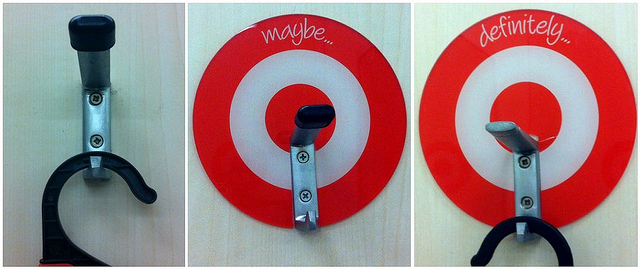The Supreme Court’s decision last month affirming, yet again, the legality and structure of Obamacare (the Affordable Care Act) could signal an end to the 5-year slog of bitter political divisiveness over the law. Or not.
As I see it, one of two divergent scenarios could play out between now and November, 2016:
(1) The number of people benefiting from the law grows briskly, premium increases remain modest, and Americans finally accept the law as permanent and worth it; that leads Republicans (and their presidential candidates) who have vigorously opposed the law to back off, realizing they’re fighting a losing battle that could cost them control of Congress and their bid for the White House in 2016.
(2) The number of people benefiting from the law plateaus, premiums in the state-based exchanges increase 15% a year in 2015 and 2016, deductibles and co-pays increase, concern about restricted provider networks grows, and the public remains deeply divided over the wisdom and impact of the law. Skating off that and sensing blood in the water, Republicans double-down on their opposition to the law and make the election a referendum on it.
These scenarios are oversimplified, of course. Other events and factors could come into play, such as a foreign crisis that diverts attention from health care.
But there’s little doubt we are now (sorry for the tired metaphor) at a crossroads. The Supreme Court’s ruling pretty much means that the only route to dismembering the law is political.
As a reminder, the Republican-controlled House of Representatives has voted along party lines over 50 times to repeal parts or all of the law. In the Senate, also controlled by Republicans since the 2014 elections, efforts by members of that party to repeal the law have been bogged down by rules that require 60 votes to get major legislation to a full Senate vote. The Republicans hold 54 seats in the Senate, to the Democrats’ 44, plus 2 independents. Obama has also pledged to veto any bill that undermines the law.
So the 2016 elections could well decide Obamacare’s fate. If Republicans win the White House and maintain their majorities in Congress, the only way Democrats could block repeal of the law—assuming Republicans pursue that—is through the 60-vote rule in the Senate to break a legislative filibuster. That assumes Republicans don’t top 60 seats in the Senate in the 2016 elections, a pretty safe bet.
Your role in all this? Polls by the Kaiser Family Foundation, (“KFF”), since 2011 show Americans have been persistently sharply divided on the merits of the law, and that opinion is strongly party-affiliated. That is, a large majority of Republicans oppose the law while a large majority of Democrats support it. This has always signaled to me and many other observers that the bulk of opinion on the law as a whole is driven by a combination of party and ideological loyalty, with a generous dollop of sentiment about the role of government in our lives.
Results from deeper-dive KFF surveys bear that out: a majority of Americans irrespective of political party affiliation support several major components of the ACA, such as requiring insurers to cover people with pre-existing medical conditions, without making them pay more.
I might be whistling into the wind, tilting at a big windmill or pushing the proverbial Sisyphian bolder up a steep hill, but I believe this crossroads is a time for opponents of the law (and those on the fence, about 10-15% of the population) to take a step back from the partisan political divide we all say we hate and reassess the ACA on the merits of what it has done to date, its actual provisions, and the concrete arguments pro and con. There’s no dearth of intelligent and easy-to-understand information on the internet, from both sides.
In short, make up your own mind and don’t be led by your political nose. This is an issue that should transcend lock-step politics.
If premiums and costs rise, there’ll likely be more than a few registered Democrats who’ll need to shore up their support of Obamacare, too.
In very practical terms, take 2 to 3 hours some evening or weekend and learn how the law is actually constructed. Talk to trusted friends on the opposite side of the debate. Read behind the headlines and ignore the political rhetoric—from both sides. Be engaged.
Every so often, big social changes are needed. Health reform was such a moment (well, it actually took 20 years). Keep in mind that Republicans agree that the old system was broken and unsustainable. The ACA is not a perfect law. Indeed, the tragedy of the 5-year senseless political fight over the ACA is that it’s made sensible fixes over the last few years impossible.
Be part of the solution to that, and refuse to perpetuate the problem.
_____________________________________
To understand how repeal of the ACA would drive the deficit up and leave 19 million uninsured, click here.











As for the future of Rom-Oboma Care, it’s better than nothing, but I really hope it’s on its way out. Some in Congress will continue to rail on to play to the stupid Rep. fringe, but it was a given that the SCOTUS would keep this “goose” with its golden eggs for big insurance and big pharmaceuticals solidly in place.
It was way back at the beginning that Ms. Pelosi supposedly declared: “Single Payer is off the table” as a way of “opening” negotiations!!
It is hard for me to understand that a country which can waste trillions declaring a war of aggression and occupation on Iraq, Afghanistan and others, cannot afford to support healthcare for its own people, like other industrialized nations. I guess this is what they mean by “American exceptionalism”
Not only is the ACA here to stay I hope it is expanded to a single payer system.
Other than the Declaration of Independence and the US Constitution most legislation needs to be
updated over time. Circumstances and situations change and additional inclusions are necessary.
The Republican Party wants to abolish the ACA because they have no alternative and they disapprove of the Affordable Care Act. Their disapproval is stupid because the ACA is largely a
replica of Republican thinking. The Republican Party is in severe need of updating because they
have essentially insisted upon retro thinking instead of progress. That is what they mean by progress and Republicanism.
You are too soft in your wording. Most people don’t really understand the ACA because of deliberate lies and misinformation distributed by opponents, including some presidential candidates. As to whether it is here to stay, my hope is it will be improved or that it eventually will give way to a single-payer approach.